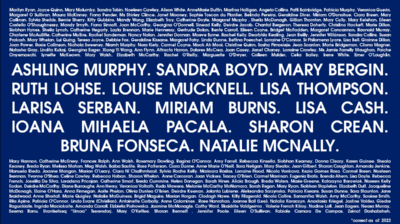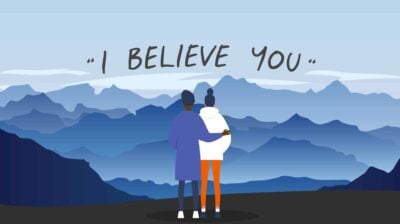Is my relationship abusive?
Know the signs of abusive behaviour to look out for in a relationship

The beginning of a relationship can be an exciting time, and you usually tend to see everything in a positive light. This means you might dismiss certain signs or feelings about the behaviour of your new partner.
Even when you really like the person, it’s important to take notice of any behaviour that doesn’t seem right to you. Knowing the signs of abusive behaviour early will help you to identify it and get help if it happens.
Abuse is something that can happen to anyone, and both women and men can be victims of abuse in a relationship.
Signs of abusive behaviour in a relationship
You might notice some or all of these signs at any stage of a relationship. If you recognise any of this behaviour at the beginning, it could develop into more serious abusive behaviour later on. Sometimes it might not start until a few months or years have passed.
Time spent together
Spending a lot of time together is quite natural during the early stages of a relationship. However, if your partner is insistent on being with you all of the time, constantly calling you/messaging you when you are not together, and you find it difficult to have time on your own or with others, this could be a sign of controlling behaviour.
Jealousy
Many people mistake jealousy and possessiveness early in the relationship as signs of love and dedication. However, becoming excessively jealous over people you speak to, spend time with, or communicate with on social media, may be an indication of controlling behaviour.
Extremes of behaviour
Extremes of behaviour can include being very loving and then extremely cold towards you without warning, and having extreme reactions to minor things or for no apparent reason.
Unpredictable behaviour, particularly at extreme levels, may cause bigger problems at a later stage, creating a feeling of ‘walking on eggshells’, especially if your partner has aggressive tendencies.
Attitudes
Everyone has their own views on how they think people should behave, but no one should force their own ideas onto you or undermine you in public or in private. You should always feel in control of your choices. If your partner tries to make you follow strict rules about how you dress, how you act, or the choices you make, this is controlling behaviour. They might also punish you or become aggressive if you don’t go along with what they say.
Isolation
If your partner criticises your friends and family or makes it difficult to stay connected with them, this is a sign that they are trying to control the other relationships in your life. Being in a relationship does not mean you should feel isolated from other people.
Aggression
If you notice your partner can be aggressive or critical towards other people, this could be a a pattern. As a relationship goes on they might start to act aggressively towards you, forcing you to do things that you are not comfortable with.
Drugs/alcohol or outside stress
Drugs, alcohol or increased stress are not the causes of abusive or aggressive actions against a partner. Being abusive is a choice. If your partner regularly blames their behaviour on these or other factors or you, they are not taking responsibility for their own actions.
Belittling comments
If your partner is always putting you down, criticising you, or making you feel worthless, this is emotional abuse. It can damage your self esteem and your sense of self-worth, and can continue to have an impact even after the abuse has stopped.
Learning more about abusive behaviour
There are a number of different types of abuse, and you might recognise some or all of these types of abuse in your relationship. Take a look at our fact sheets to learn more.
Fact sheets on abuse:
- What are the different types of abuse?
- Emotional Abuse: Here’s what you need to know
- What is date rape?
- Know the signs of physical abuse
- What to do if you have been sexually abused
- What is domestic violence?
- Am I an abusive person?
Finding help for abuse
If you are experiencing abuse, know that there is help out there.
Talk to someone
Talk to someone you trust about what’s going on and let them know your concerns. Ask them to support you or go with you to the Gardaí if that’s what you want to do.
Helplines
SpunOut.ie’s text message support service is available 24 hours a day, 7 days a week. We provide in-the-moment anonymous support and problem solving when you need it most.
Text SPUNOUT to 086 1800 280 to begin. Standard SMS rates may apply.
Women’s Aid run a free 24 hour helpline for anyone who wants to talk in confidence about abuse in their relationship: 1800 341 900
Handling threats
Sometimes an abuser will threaten to harm you or someone you love if you tell anyone what’s happening. These threats are a way of frightening you into silence. You are not responsible for the abuse. It is important to seek help from people who can support you.
Support organisations and emergency accommodation
SAFE Ireland provides contact detailsfor specialist domestic violence services including emergency refuge from abuse and domestic violence across Ireland.
AMEN is a voluntary group which provides a confidential helpline, information and a support service for male victims of domestic abuse and their children.
Seeing a counsellor
Even after the abuse has stopped you might have emotional or self-confidence problems. Seeing a counsellor or a domestic violence support worker can help you work through your feelings.
Find out more about abusive behaviours in relationships at TooIntoYou.ie where you can read about different types of abusive behaviour and take a quiz.
If you need to talk to someone right now you can call Childline for free on 1800 66 66 66, contact Samaritans for free on 116 123, text 087 2 60 90 90 (standard rates), or email [email protected], or call Women’s Aid on 1800 341 900.
Feeling overwhelmed and want to talk to someone?
- Get anonymous support 24/7 with our text message support service
- Connect with a trained volunteer who will listen to you, and help you to move forward feeling better
- Whatsapp us now or free-text SPUNOUT to 50808 to begin.
- Find out more about our text message support service
If you are a customer of the 48 or An Post network or cannot get through using the ‘50808’ short code please text HELLO to 086 1800 280 (standard message rates may apply). Some smaller networks do not support short codes like ‘50808’.






